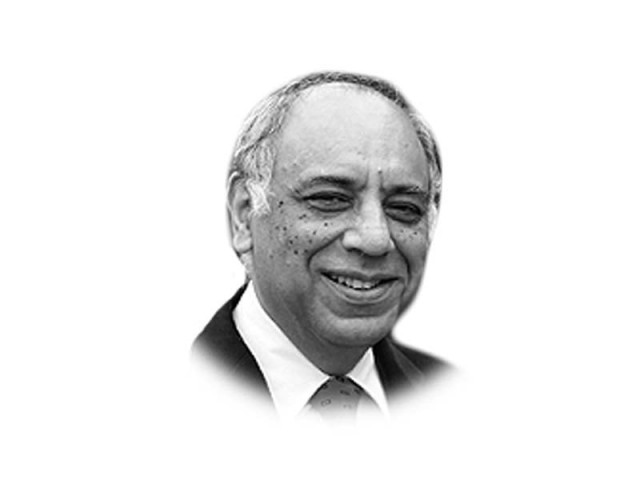Ali Baba and Robin Hood
There is no country in which corruption has been completely uprooted

Ali Baba and Robin Hood
In Pakistan, we have succumbed over time to fast thinking and the graver the situation the more instinctive and emotional the thought process tends to become.
It’s time to take a deep breath.
Look at the current situation which offers a surreal scenario of a major country reduced to a farcical contest between Ali Baba and his 40 thieves on one side and Robin Hood and his merry men on the other. Ali Baba’s gang purportedly looted the people and got phenomenally rich under the protection of earlier kings while Robin Hood and his gang are vowing to get it all back to the poor with the support of the reigning monarchs.
Those with the luxury to enjoy the spectacle can let their imaginations roam and fill in the secondary characters of King Richard, Maid Marian and the Sheriff of Nottingham but the poor who have been looted and to whom the loot is to be putatively returned are paying a heavy price for the fast thinking.
This fast thinking incorporates a number of biases. The Ali Baba-Robin Hood frame assumes that there is a fixed pot of money in the economy that has to be in one set of hands or the other; that nothing can be done till this money is recovered; that all those on one side are thieves while all those on the other are saints; and that the end of corruption is the precondition for development.
All these assumptions are flawed as even a cursory look at any real world economy would reveal. There is no country in which corruption has been completely uprooted and there are vibrant neighbouring economies in which the size of scams is much bigger than those in Pakistan. Corruption exists in developed countries like Japan and Korea where prime ministers have gone to prison, as well as in China, India and Bangladesh. Nowhere has life been put on hold till the end of corruption. China and India have been growing at unprecedented rates for extended periods and even the Bangladeshi economy is growing faster than Pakistan’s despite being rated more corrupt than the latter.
There is no argument that corruption is a problem to be addressed but it is also an ironic fact that its extent is often a good indicator of the size of the economy. Fast-thinking attempts to go after corruption can often strangle the economy or, like similar perennial attempts to purge prostitution, spread it even further into the interstices of society. Slow thinking would force one to balance the difficult choice between a fast growing economy with some corruption and a land of the pure that is mired in equitably shared poverty.
It is also silly to posit that saints and sinners are distributed non-randomly in the world. Here we do not even have to look beyond our borders. How can it be when so many of Robin Hood’s merry men were earlier members of Ali Baba’s set of heartless thieves? And what does one make of the fact that our Ali Babas and Robin Hoods share the same set of ever-ready advisers, a phenomenon that would have been quite alien in Sherwood Forest.
Slower thinking would help absorb the reality that the primary task of any government dedicated to the welfare of the poor is to make the economy grow, even at the cost of some corruption and to understand the concept of sunk costs and let bygones be bygones as the price of moving ahead. The biggest impediment to that realisation is the obsession with purity, proving oneself holier than thou and chasing the mirage of hidden wealth and looted plunder. This instinctual urge to move money from one pocket to another, a corollary of fast thinking, is consuming precious time that should go into formulating policies to move the economy forward.
A deliberative stocktaking is also part of slower thinking. China and India both commenced their historic trajectories of rapid growth in 1979 and 1991 respectively, following major innovations in their policy regimes. Neither owes its economic success and poverty alleviation to ending corruption, recovering looted wealth, or indiscriminate harassing of non-filers of income tax in countries where vast majorities do not even earn enough to be liable for taxation.
All these are lessons that are there for the learning, preferably sooner than later, but it would be much more ominous if the fast thinking on display masks a lost ability to think slow in policy terms. If that turns out to be the case, the merry men would push the country over into a certain catastrophe.
Published in The Express Tribune, November 16th, 2018.
Like Opinion & Editorial on Facebook, follow @ETOpEd on Twitter to receive all updates on all our daily pieces.













COMMENTS
Comments are moderated and generally will be posted if they are on-topic and not abusive.
For more information, please see our Comments FAQ